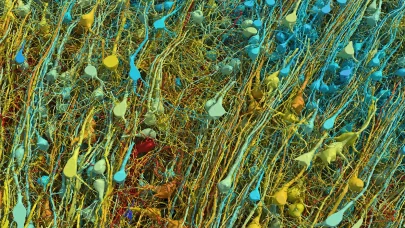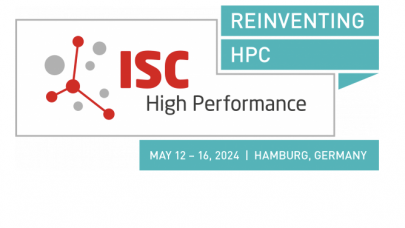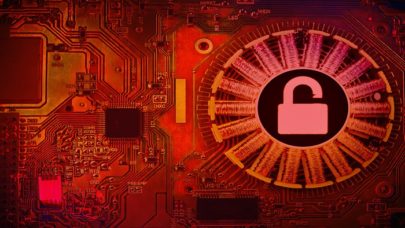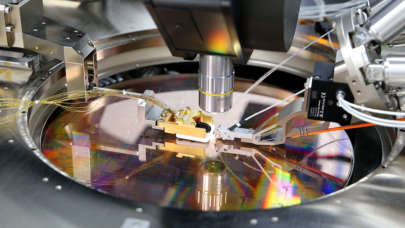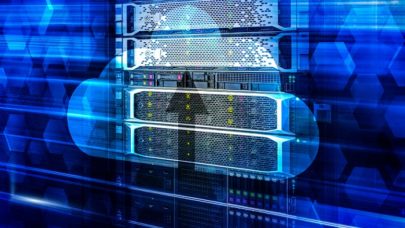NEW YORK, May 10, 2019 — ACM, the Association for Computing Machinery, has announced the recipients of four prestigious technical awards. These leaders were selected by their peers for making contributions that extend the boundaries of research, advance industry, and lay the foundation for technologies that transform society. The 2018 recipients will be formally honored at the ACM Awards Banquet on June 15, 2019 in San Francisco.
 Combs started Wireshark as an open source project in 1997, under the name Ethereal. The software quickly became the most commonly used system for visually analyzing network protocol traffic. Before the advent of Ethereal and Wireshark, protocol analyzers were expensive, dedicated pieces of hardware that were only available to large institutions. The creation of an open source network protocol analyzer democratized access to network protocol analysis. It also enabled people to learn about network protocols as they were able to visualize the traffic on their own networks. In addition, Wireshark has also had significant influence on the areas of network engineering and cyber security. Engineers who work alongside security experts in financial institutions and other high-profile businesses make extensive use of Wireshark in their ongoing fight against cybercrime.
Combs started Wireshark as an open source project in 1997, under the name Ethereal. The software quickly became the most commonly used system for visually analyzing network protocol traffic. Before the advent of Ethereal and Wireshark, protocol analyzers were expensive, dedicated pieces of hardware that were only available to large institutions. The creation of an open source network protocol analyzer democratized access to network protocol analysis. It also enabled people to learn about network protocols as they were able to visualize the traffic on their own networks. In addition, Wireshark has also had significant influence on the areas of network engineering and cyber security. Engineers who work alongside security experts in financial institutions and other high-profile businesses make extensive use of Wireshark in their ongoing fight against cybercrime.
Combs, who serves as Director of Open Source Projects at Riverbed Technology, has continued to work on the Wireshark code. He spent 20 years guiding the open source community that has developed around the software and leading SharkFest, an annual educational conference focused on sharing knowledge, experience and best practices among the Wireshark developer and user communities.
The ACM Software System Award is presented to an institution or individual(s) recognized for developing a software system that has had a lasting influence, reflected in contributions to concepts, in commercial acceptance, or both. The Software System Award carries a prize of $35,000. Financial support for the Software System Award is provided by IBM.
Constantinos Daskalakis and Michael J. Freedman receive the ACM Grace Murray Hopper Award.
Daskalakis, a professor at MIT, is recognized for his seminal contributions to Theory of Computation and Economics, particularly the Complexity of Nash Equilibrium.
Strategic interaction greatly complicates behavior in socioeconomic environments, from traditional markets and offline social networks to modern technological systems such as online advertising platforms, kidney exchanges, cryptocurrencies, sharing economy applications, and online social networks. To analyze behavior in such strategic environments, economists have long relied on concepts of equilibrium. Daskalakis’s work, with Goldberg and Papadimitriou, has challenged equilibrium theory by showing that Nash equilibrium is computationally intractable and thus unattainable, in general. His work has influenced an ongoing reshaping of the study of strategic behavior, showing that computation must play an essential role in the foundations of game theory and economics. Daskalakis’s more recent work has resolved long-standing open problems in multi-dimensional mechanism design, and advanced several other fields, including machine learning, probability theory and statistics.
Freedman, a professor at Princeton University, is cited for the design and deployment of self-organizing geo-distributed systems.
By introducing new algorithms and protocols, Freedman has shown how to build scalable, performant, and autonomous distributed systems for modern heterogeneous deployments and realistic workloads. Some of Freedman’s most popular systems include CoralCDN, a content distribution infrastructure that has been deployed at hundreds of network sites worldwide and been used by millions of clients to share images, videos and other content; the JetStream system, which employs an innovative approach to data streaming analytics; and TimescaleDB, an open source time series database that provides complex queries at scale on both historical and fresh data. Additionally, in more fundamental research, Freedman and colleagues have demonstrated that theoretically deep cloud systems need not be slow or scale poorly.
The ACM Grace Murray Hopper Award is given to the outstanding young computer professional of the year, selected on the basis of a single recent major technical or service contribution. This award is accompanied by a prize of $35,000. The candidate must have been 35 years of age or less at the time the qualifying contribution was made. Financial support for this award is provided by Microsoft.
Pavel Pevzner, a professor at the University of California San Diego, receives the ACM Paris Kanellakis Theory and Practice Award for pioneering contributions to the theory, design and implementation of algorithms for string reconstruction and to their applications in the assembly of genomes.
Pevzner’s research interests span the field of computational biology, and his work has been guided by tailoring algorithmic ideas to biological problems. The life sciences have been transformed by the ability to rapidly sequence and assemble genomes for organisms from existing and extant species and use these assembled genomes to answer fundamental and applied questions in biology, medicine and other sciences. Pevzner has made fundamental contributions to the theoretical study of string algorithms and to their application to scalable reconstruction of genomes and other biological sequences such as antibodies and antibiotics. Pevzner’s algorithms underlie almost all sequence assemblers used today and were used to reconstruct the vast majority of genomic sequences available in databases.
The ACM Paris Kanellakis Theory and Practice Award honors specific theoretical accomplishments that have had a significant and demonstrable effect on the practice of computing. This award is accompanied by a prize of $10,000 and is endowed by contributions from the Kanellakis family, with additional financial support provided by ACM’s Special Interest Groups on Algorithms and Computation Theory (SIGACT), Design Automation (SIGDA), Management of Data (SIGMOD), and Programming Languages (SIGPLAN), the ACM SIG Projects Fund, and individual contributions.
Henry Kautz receives the ACM – AAAI Allen Newell Award for contributions to artificial intelligence and computational social science, including fundamental results on the complexity of inference, planning and media analytics for public health.
Beginning with his doctoral dissertation, Henry Kautz, now a professor at the University of Rochester, has studied how computers can infer the goals and plans of people by studying their behavior. He has made a range of fundamental contributions to theory and practice in knowledge representation and reasoning, planning and plan recognition and computational social science. Kautz was one of the pioneers in analyzing the computational complexity of knowledge representation formalisms. He was also a co-developer of the first randomized local search algorithms for Boolean satisfiability testing, which have found practical application in planning, graphical models, and software verification.
In the area of pervasive computing and social media analytics, his trailblazing projects have included a system to help cognitively disabled people find their way by inferring the transportation destinations of selected groups of people; a project that uncovered the central role of air travel in the spread of diseases by analyzing social media data; and an initiative to improve the efficiency of restaurant health inspections by combining social media reports of food poisoning with location data.
The ACM – AAAI Allen Newell Award is presented to an individual selected for career contributions that have breadth within computer science, or that bridge computer science and other disciplines. The Newell award is accompanied by a prize of $10,000, provided by ACM and the Association for the Advancement of Artificial Intelligence (AAAI), and by individual contributions.
About ACM
ACM, the Association for Computing Machinery, is the world’s largest educational and scientific computing society, uniting computing educators, researchers and professionals to inspire dialogue, share resources and address the field’s challenges. ACM strengthens the computing profession’s collective voice through strong leadership, promotion of the highest standards, and recognition of technical excellence. ACM supports the professional growth of its members by providing opportunities for life-long learning, career development, and professional networking.
Source: ACM




























